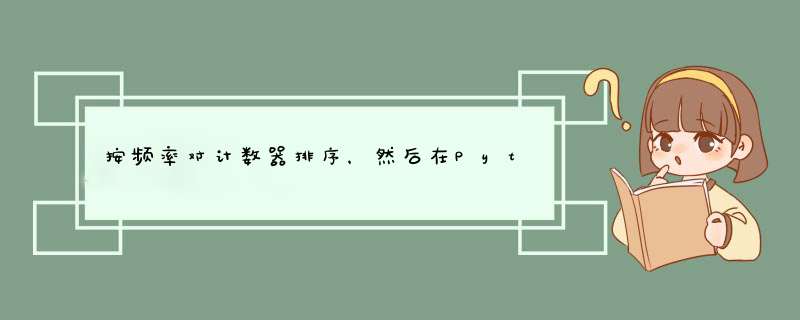
听起来您的问题是如何按频率对整个列表进行排序,然后按字母顺序打破平局。您可以像这样对 整个列表 进行排序:
>>> a = sorted(letter_count.items(), key=lambda item: (-item[1], item[0]))>>> print(a)# [('a', 2), ('b', 1), ('e', 1), ('h', 1), ('l', 1), ('p', 1), ('t', 1)]如果您希望输出仍然是字典,则可以将其转换为
collections.OrderedDict:
>>> collections.OrderedDict(a)# OrderedDict([('a', 2),# ('b', 1),# ('e', 1),# ('h', 1),# ('l', 1),# ('p', 1),# ('t', 1)])如您所见,这将保留顺序。
'a'首先是因为它最频繁。其他所有内容均按字母顺序排序。
欢迎分享,转载请注明来源:内存溢出

 微信扫一扫
微信扫一扫
 支付宝扫一扫
支付宝扫一扫
评论列表(0条)